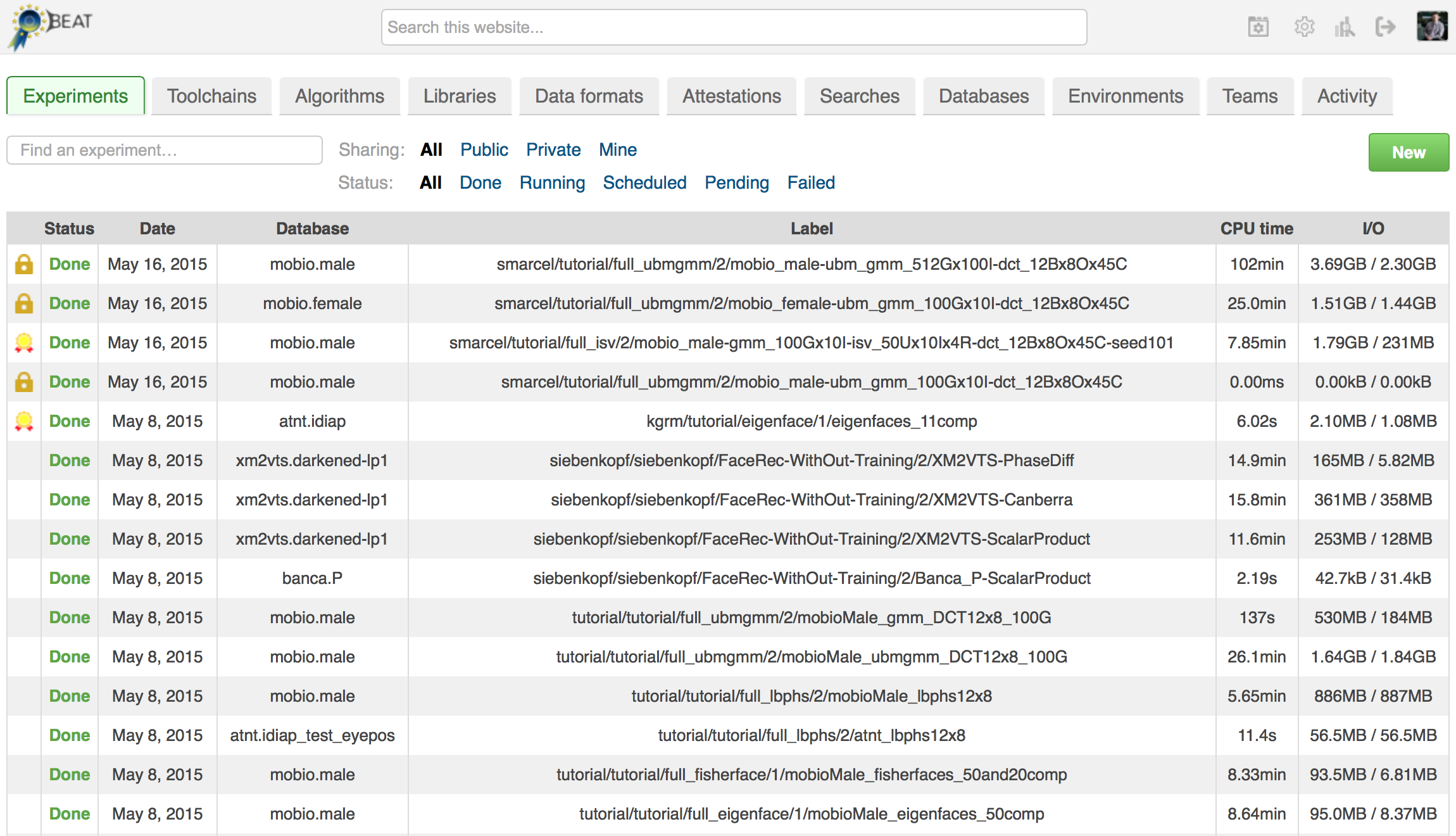Biometrics Evaluation and Testing (BEAT)
Evaluation of identification technologies, including Biometrics (SEC-2011.5.1-1)
BEAT platform
The BEAT platform is an European computing e-infrastructure for Open Science proposing a solution for open access, scientific information sharing and re-use including data and source code while protecting privacy and confidentiality. It allows easy online access to experimentation and testing in computational science. You define what data and modules you would like to use, we make sure the system runs and provides you with a result. Data from different experiments can be easily compared and searched. The platform also provides an attestation mechanism for your reports (scientific papers, technical documents or certifications).
 “This project has received funding from the European Union’s Seventh Framework Programme for research, technological development and demonstration under grant agreement no 284989”.
“This project has received funding from the European Union’s Seventh Framework Programme for research, technological development and demonstration under grant agreement no 284989”.
Identity management using Biometrics is a reality because of the e-passport (Biometric passport). Similar biometric technology has also become more prevalent on personal computers with more biometric-enabled functions and soon applications to recognize nomadic users through biometrics will also emerge as mobile devices are equipped with more sensors. Unfortunately the reliability of these biometric technologies is not always known and therefore can’t be guaranteed. In particular the three criteria of (1) the performance of the underlying biometric system, (2) the robustness to vulnerabilities such as direct (spoofing) or indirect attacks, and (3) the strength of privacy preservation techniques, are often unknown or impossible to compare to competitors.
The lack of standard operational evaluations is the reason that we cannot measure the reliability of these biometric technologies. Some initiatives exist in Europe, the United States of America, and Asia. However, these initiatives are: isolated (focusing only on one or two biometric modalities), disorganized (teams from the same institution can work on different biometrics without talking to each other), or limited in time (very few are organizing ongoing evaluations). This leads to discontinuous and non-integrated efforts which have a limited life span. Thus there is a need for establishing a framework to evaluate, in a systematic way, the performance of biometric technologies using several metrics and criteria (performance, vulnerability, privacy).
The goal of BEAT is to propose a framework of standard operational evaluations for biometric technologies. This will be achieved by (1) developing an online and open platform to transparently and independently evaluate biometric systems against validated benchmarks, (2) designing protocols and tools for vulnerability analysis, and (3) developing standardization documents for Common Criteria evaluations. Additionally, legal aspects will be considered to address the issues of both privacy data protection and Intellectual Property and so ensure that the BEAT framework can be used by the research community and companies. There will be three outcomes of this project. The first is that the reliability of biometric systems will be measurable and thus should lead to a meaningful increase in performance. The second is that technology transfer from research to companies will be much easier as there will be an interoperable framework. Finally, decision-makers and authorities will be informed about the progress that is made in biometrics as the results will have an impact on standards. Given these outcomes we expect that BEAT will significantly contribute to the development of a European Identification Certification System.

